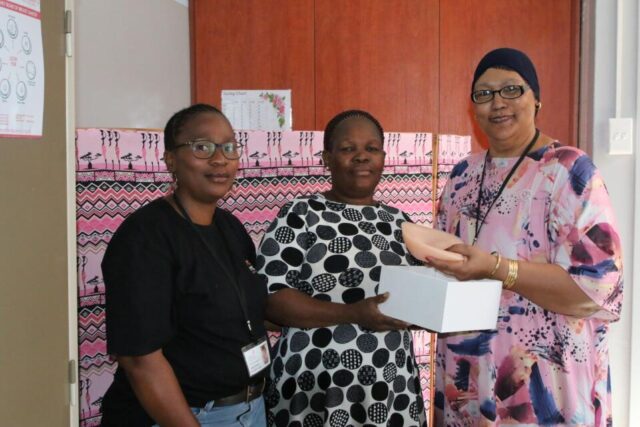In an attempt to build camaraderie among cancer survivors, Reach for Recovery, a non-profit organisation that renders emotional and practical support to cancer patients, has indicated that its Ditto Project has eased the recovery process for many cancer patients.
IN AN ATTEMPT to build camaraderie among cancer survivors, Reach for Recovery, a non-profit organisation that renders emotional and practical support to cancer patients, has indicated that its Ditto Project has eased the recovery process for many cancer patients.
The objective of the Ditto Project is to provide indigent patient survivors with a subsidised silicone prosthesis that will allow them to regain their dignity.
A volunteer at Reach for Recovery, Sonya Kenny, who is also a cancer survivor and has undergone a double mastectomy, said they have identified the traumatic effects that surgery has on the emotional recovery of patients.
“I am a cancer survivor and have undergone the surgery myself. I have had experience with the emotional toll the removal of one’s breast can have on a woman. However, I had to regard my health more than my breast.
“Being diagnosed with cancer is tough and some people immediately think they will die. Some see the diagnosis as a death sentence. I had to make a choice of whether I would remove my breasts just a few days after I was diagnosed. It was a difficult journey for me personally as well as for my family,” she said.
“It was during my stay in hospital that I saw the challenges and gaps that patients experience. We get medical assistance, but nobody actually understands the emotional turmoil you go through during the treatment process. It is more than just having to live without breasts There are so many other factors one experiences during that process. During the treatment process, patients lose their hair, you lose your teeth, you are constantly nauseous and cannot eat and women are unable to conceive because of the radiation treatment.”
Kenny said they saw that due to financial constraints, many survivors are unable to acquire prosthetics.
“External breast prosthesis may be the best option for female survivors, especially if they cannot afford to undergo reconstructive surgery. However, not all patients can afford the cost of permanent prosthetics.
“We believe that all women should have access to appropriate breast prosthetics regardless of whether they can pay for it or not. We need to give back some of the survivor’s dignity. We do not however give the prosthesis after their surgery, only after they are done with all their treatment. The reason for that is because, during treatments, patients tend to pick up and lose weight. The breast size also changes during this time. It is no use you give a patient who just had their surgery a prosthesis because they will have to undergo chemotherapy. At the end of the patient’s journey the prosthesis will be either too big or too small for the patient,” said Kenny.
She said her team, who are assisting cancer patients at the Robert Mangaliso Sobukwe Hospital in Kimberley on a voluntary basis, have been successful in assisting disadvantaged women in the Province.
“We are a team of three and we are all cancer survivors. All of us are doing this as volunteers, we get no remuneration for the work we do. We work in partnership with the Oncology Unit at the hospital. We accompany doctors when they have to deliver news on diagnosis to a patient. When we go and see a patient, they are able to relate and be at ease once they hear that we are survivors.
“We are also able to precisely tell them where their bodies and emotional state will be once they undergo surgery and treatment. We present the human aspect of the illness and the doctor gives the medical diagnosis.
“After we make contact with a patient at the hospital, we remain in touch with them after they are discharged. Each of us has a group of patients whom we stay in contact with daily.
“We understand that the days after a patient is discharged are crucial and due to the vastness of the Province, we need to render support and emotional assistance to patients as far as Springbok. We pay for the expenses, ranging from airtime to make the calls and the taxi fare to get to the hospital, from our own pockets. We have realised that this cause is greater and the survival of many people relies on knowing that there is just one person walking the road to recovery with them.”
A recipient of the prosthetics, Ellen Mokoena, who was diagnosed with cancer in 2020 and underwent a mastectomy, said she is immensely thankful for the assistance she received from Reach for Recovery.
“The day I received the news that I got cancer, I remember the doctor just told me and left me. At the time I received no counselling to process the diagnosis. I was in shock and did not even understand,” said Mokoena
“The ladies from Reach for Recovery came to me and offered me support. They have been walking this journey with me when I had to undergo chemotherapy.
“What also inspired me was that I could see that these ladies were living with their condition and did not give up the fight. That gave me the courage to also fight.
“The prosthetic has helped me as my clothes now fit properly. I have always wanted it but did not know where to acquire one. I am delighted to have been blessed with this breast prosthetic.”








